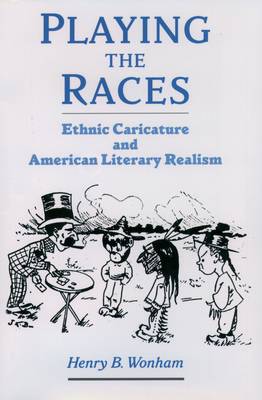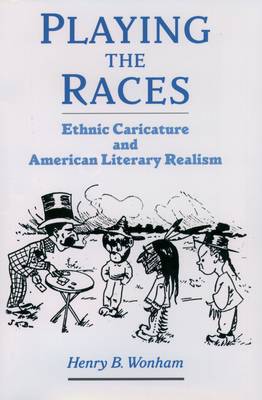
En raison d'une grêve chez bpost, votre commande pourrait être retardée. Vous avez besoin d’un livre rapidement ? Nos magasins vous accueillent à bras ouverts !
- Retrait gratuit dans votre magasin Club
- 7.000.000 titres dans notre catalogue
- Payer en toute sécurité
- Toujours un magasin près de chez vous
En raison de la grêve chez bpost, votre commande pourrait être retardée. Vous avez besoin d’un livre rapidement ? Nos magasins vous accueillent à bras ouverts !
- Retrait gratuit dans votre magasin Club
- 7.000.0000 titres dans notre catalogue
- Payer en toute sécurité
- Toujours un magasin près de chez vous
126,95 €
+ 253 points
Description
Why did so many of the writers who aligned themselves with the social and aesthetic aims of American literary realism rely on stock conventions of ethnic caricature in their treatment of immigrant and African-American figures? As a self-described "tool of the democratic spirit," designed to "prick the bubble of abstract types," literary realism would seem to have little in common with the aggressively dehumanizing comic imagery that began to proliferate in magazines and newspapers after the Civil War. Indeed, critics such as Alain Locke hailed realism's potential to accomplish "the artistic emancipation of the Negro," a project that logically extended to other groups systematically misrepresented in the comic imagery of the period. From the influential "Editor's Study" at Harper's Monthly, William Dean Howells touted the democratic impulse of realist imagery as an alternative to romanticism's "pride of caste," which is "averse to the mass of men" and "consents to know them only in some conventionalized and artificial guise." Yet if literary realism pursued the interests of democracy by affirming "the equality of things and the unity of men," why did its major practitioners, including Howells himself, regularly employ comic typification as a feature of their representational practice? Critics have often dismissed such apparent lapses in realist practice as blind spots, vestiges of a genteel social consciousness that failed to keep pace with realism's avowed democratic aspirations. Such explanations are useful to a point, but they overlook the fact that the age of realism in American art and letters was simultaneously the great age of ethnic caricature. Henry B. Wonham argues that these two aesthetic programs, one committed to representation of the fully humanized individual, the other invested in broad ethnic abstractions, operate less as antithetical choices than as complementary impulses, both of which receive full play within the period's most demanding literary and graphic works. The seemingly anomalous presence of gross ethnic abstractions within works by Howells, Twain, James, Wharton, and Chesnutt hints at realism's vexed and complicated relationship with the caricatured ethnic images that played a central role in late nineteenth-century American thinking about race, identity, and national culture. In illuminating that relationship, Playing the Races offers a fresh understanding of the rich literary discourse conceived at the intersection of the realist and the caricatured image.
Spécifications
Parties prenantes
- Auteur(s) :
- Editeur:
Contenu
- Nombre de pages :
- 208
- Langue:
- Anglais
- Collection :
Caractéristiques
- EAN:
- 9780195161946
- Date de parution :
- 17-06-04
- Format:
- Livre relié
- Format numérique:
- Genaaid
- Dimensions :
- 155 mm x 244 mm
- Poids :
- 453 g

Les avis
Nous publions uniquement les avis qui respectent les conditions requises. Consultez nos conditions pour les avis.






